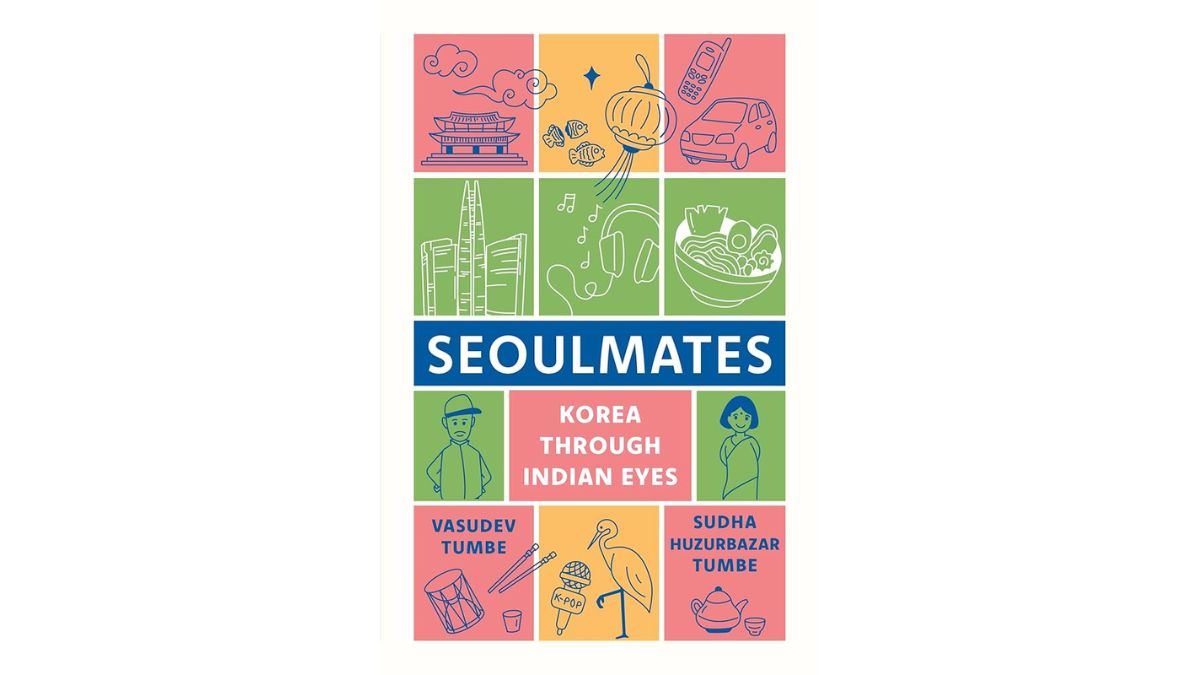Seoulmates: This new book describes an Indian couple’s adventures in Korea

Vasudev Tumbe and Sudha Hazurbazar Tumbe travelled to South Korea in 2013 when Vasudev got offered a position as the CFO of SsangYong Motor Company and ended up spending almost six years there. Seoulmates encapsulates their experiences in Korea, taking a look at the country through Indian eyes. They were not in the first flush of youth when they went there; Sudha, for example, was 50. But the way they immersed themselves into Korean culture and life is admirable, lending depth and insight to the book.
In the prologue, Vasudev adds a caveat: they had an enjoyable and memorable experience in Korea, but the same might not be true of everyone. They lived a comfortable life with an English-speaking driver and an interpreter in office for Vasudev. Sudha learnt the language and went from being an outsider to someone with intimate knowledge of Korean cuisine, culture and life through her interactions with numerous Koreans and expats in the country. She obviously has a talent to make friends and an affinity towards trying out new experiences. “The experiences may have been different if we were strict vegetarians or students, or were just starting our careers,” writes Vasudev.
The book describes the country’s history, economics, culture and lifestyle, with Vasudev writing about the former two and Sudha, about the latter two. Personally, I found the part about the economics and work culture of Korea more interesting, perhaps because I was already somewhat familiar with the widespread popularity of the K-wave and Hallyu, even amongst youngsters in India, being an occasional watcher of K-dramas (Sudha did describe some interesting ones which I felt I must check out.)
When it comes to business and economics, Korea is highly advanced on the macro level, transforming into a developed country within two generations, from a per capita income of less than $300 in 1970 to $35,000 in nominal terms in 2023. Vasudev also describes the country’s top-notch infrastructure, public transport system and urban design. On the micro level, however, the picture is more murky; for example, when it comes to their work culture. Ingrained qualities like discipline, punctuality and respect for elders are off-set by others like a superiority complex vis-a-vis people from non-western countries. There is a constant comparison and wish to emulate others, writes Vasudev, having heard the words ‘I envy you’ innumerable times. “There is no malice in this remark, but it comes so spontaneously to Koreans as compared to Indians, who wouldn’t say so as freely,” writes Vasudev. Koreans are big spenders (splurging on skincare products, cosmetics, expensive purses and dining-out experiences) and bad savers. They dread retirement as they feel they have not saved enough and might have to work even afterwards.
The culture difference between India and Korea led to many interesting experiences for Vasudev. One of the first questions he was asked after arriving in his Korean office, for example, was, “How big is your house?”, which took him aback. Many of his Korean colleagues would laugh and joke in Korean in his presence, making him feel lost and left out. They would not explain the joke even when he asked them to, which would be considered bad manners in India, he says.
The rest of the book is about Sudha’s experiences learning the language, making friends and immersing herself in Korean life. From studying painting, handicraft, calligraphy and cooking to being appointed a Gangnam publicity ambassador (her job being to wander around Korea and write about her experiences to boost tourism in the country) to volunteering at the Korea Dyslexia Association, Sudha seems to have lived life to the full.
The pictures in the book, featuring the Vasudevs’ family and wide circle of friends, testify to how much the country became a part of them and they, a part of it, which makes them uniquely qualified to write this book. This is travel writing of a high order with six years of experiences, observations and insights compressed into 230 pages. Overall, it is an enjoyable story for anyone interested in knowing how a country achieves its national character and flavour, told in an engaging and simple style.
Seoulmates: Korea through Indian Eyes
By Vasudev and Sudha Huzurbazar Tumbe
Published by Juggernaut
Price Rs599; pages 230
Books Review